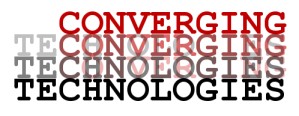Converging
Technologies Implementation Council (CTIC)
Committee Charge
Background
In 2004, Converging Technologies was designated one of
Union’s
five distinctive “pillars” (the others being international programs,
undergraduate research, community service, and the Minerva House System).
Much progress has been made, as documented at the
CT web site.
The objective of CT is to capitalize on Union's small size and history of
curricular innovation to break down disciplinary boundaries among science
and engineering disciplines. The integration of engineering and the
liberal arts is now a major focus of the
Strategic Plan announced by Union in February of 2007.
The Converging Technologies initiative adds value to
having liberal arts and engineering together in a small residential college, and
will provide a model for twenty-first century undergraduate education. As
currently envisioned, CT consists of three parts:
-
Explore emerging scientific and technological fields in depth
Some
students will want to explore emerging fields defy classification into any
single department, fields such as nanotechnology, bioengineering,
applications of information technology, mechatronics and sensor
technologies, new energy sources. The list of new interdisciplinary CT
fields will undoubtedly continuously change and grow.
-
Technological Literacy
“Technological
literacy” has two important meanings: for liberal arts majors to understand
technology, and for engineers to be socially and culturally literate. All
of our graduates will live in a world increasingly influenced by technology,
and graduates in any field – technical or non-technical – need to
understand science and technology and their social and ethical implications.
An important part of the CT initiative is to promote dialog among students
of every specialty on important science and technology issues.
-
Connect to the world
We want Union students to have the opportunity to see how science and
engineering theory are put into practice through carefully selected
partnerships with industry (both established and start-up), government, and
private organizations. These partnerships may take the form of
undergraduate research projects, internships, cooperative programs, and
service learning activities with the partnering organization. Where
possible, we encourage students to undertake these activities as members of
interdisciplinary teams.
Charge to the CT Implementation Council
-
The
CTIC will help define and disseminate information about the Converging
Technologies initiative consistent with the College's Strategic Plan.
-
The
CTIC will assist in fundraising from government, industry, and alumni and
friends of Union College, to support CT initiatives.
-
In
order to create a climate on campus that facilitate increased links between
the liberal arts and engineering, the CITC will identify impediments to the
more widespread adoption of CT at Union, and to recommend to the appropriate
administrators and/or faculty governance committees ways to overcome those
impediments.
Internal issues to be addressed by the CTIC
include:
Staffing
-
hiring for interdisciplinary programs;
make-up of hiring committees; departmental or interdepartmental home for
interdisciplinary hires
-
criteria for promotion, tenure and merit of
interdisciplinary faculty, when the job description specifies that the
position is to service a non-traditional, interdisciplinary field
-
encouraging (and making it possible for)
existing faculty to contribute to CT programs
Curriculum
-
ensuring a proper liberal-arts-worthy
balance of breadth and depth in CT programs
-
finding appropriate academic “homes” for CT
courses, when they do not neatly fit into existing disciplinary boxes
-
creating policies for staffing
interdisciplinary team-taught courses
-
creating new ways of integrating engineering
and the liberal arts that may not conform to traditional course units,
for example modules and sister courses
-
integrating CT into the new general
education curriculum for all Union students, and recommending homes for
CT courses
-
considering the proper role of CT courses in
disciplinary majors and minors
Space and Facilities
-
planning for and allocation of space and
facilities for CT faculty, research, and academic programs
-
determining the feasibility of shared,
interdisciplinary teaching and research facilities, including location,
scheduling, and maintenance of space and instruments.
Budgets
Publicity and Fundraising
-
promoting CT programs, both internally and
externally, especially in admissions, grant-writing, and fundraising
-
reviewing proposed CT partnerships
|

